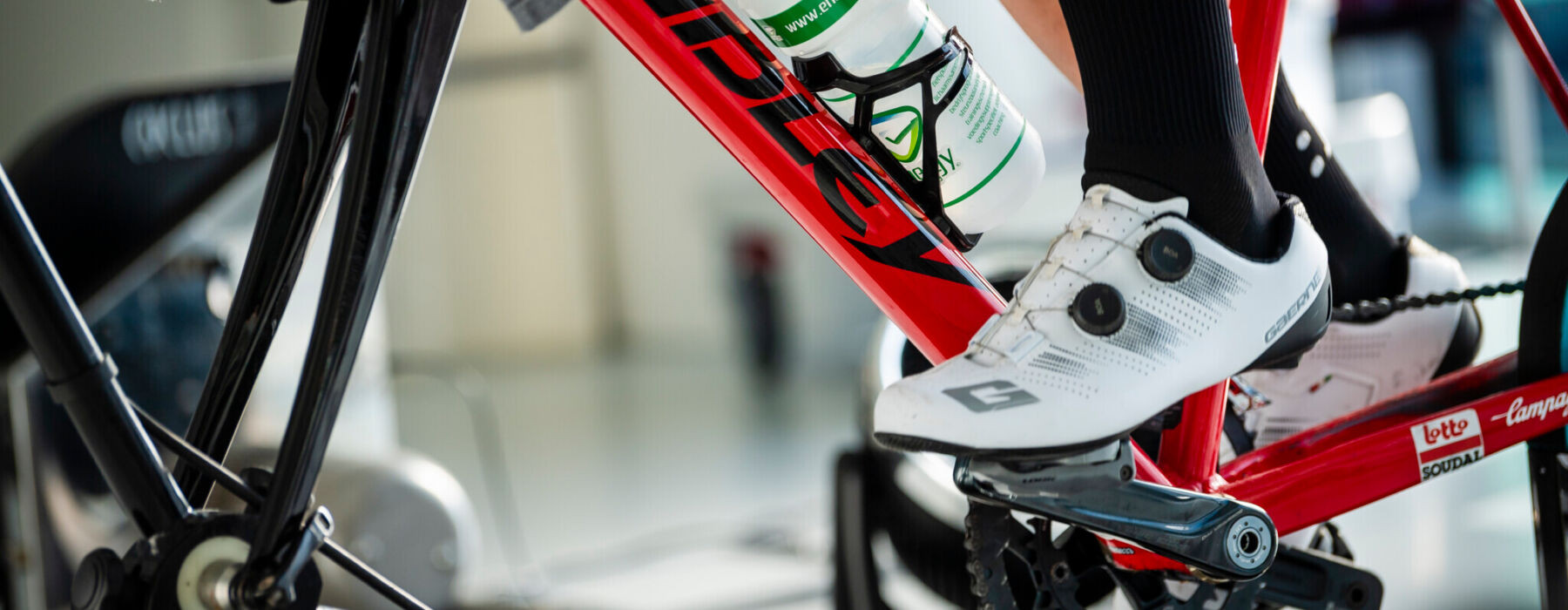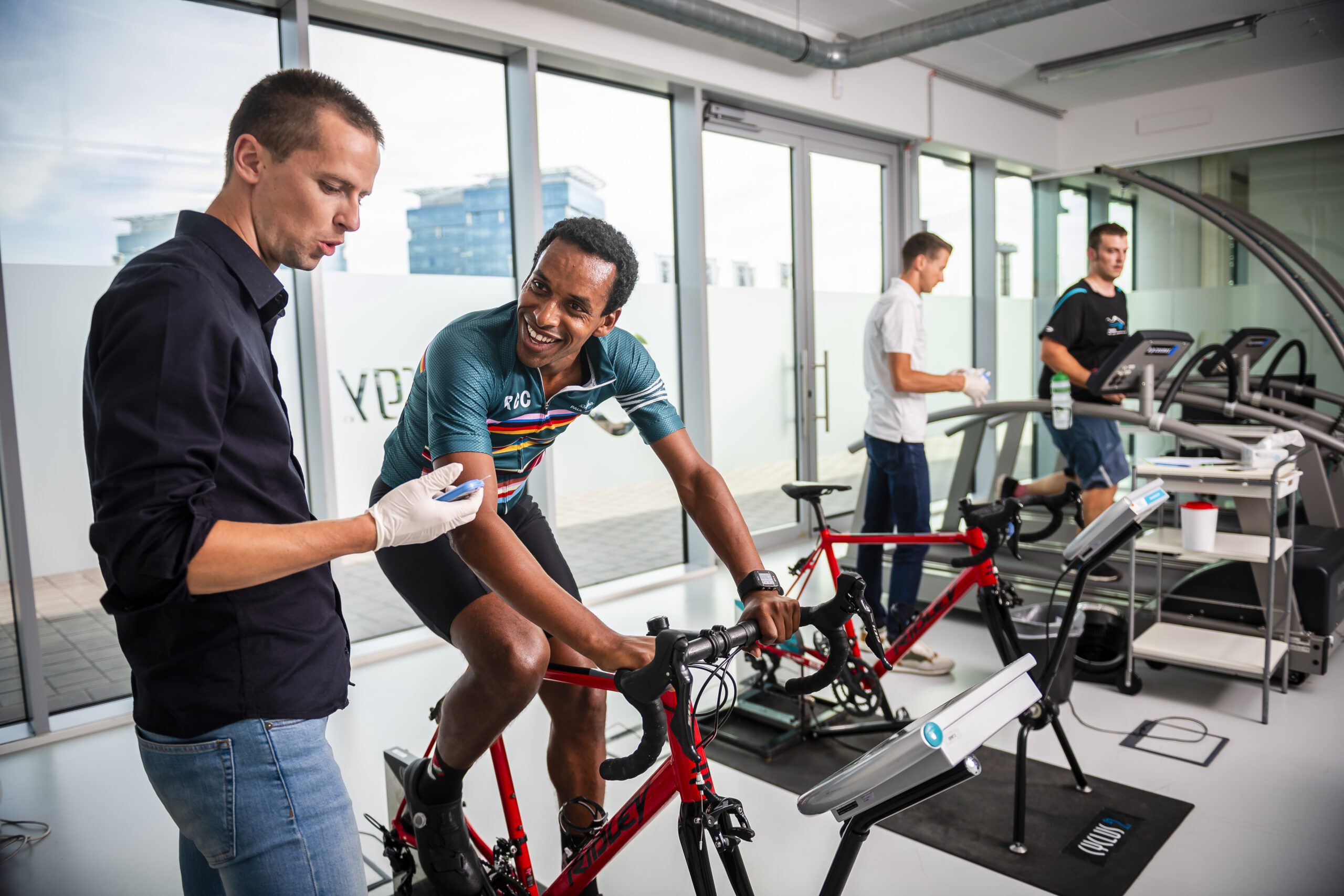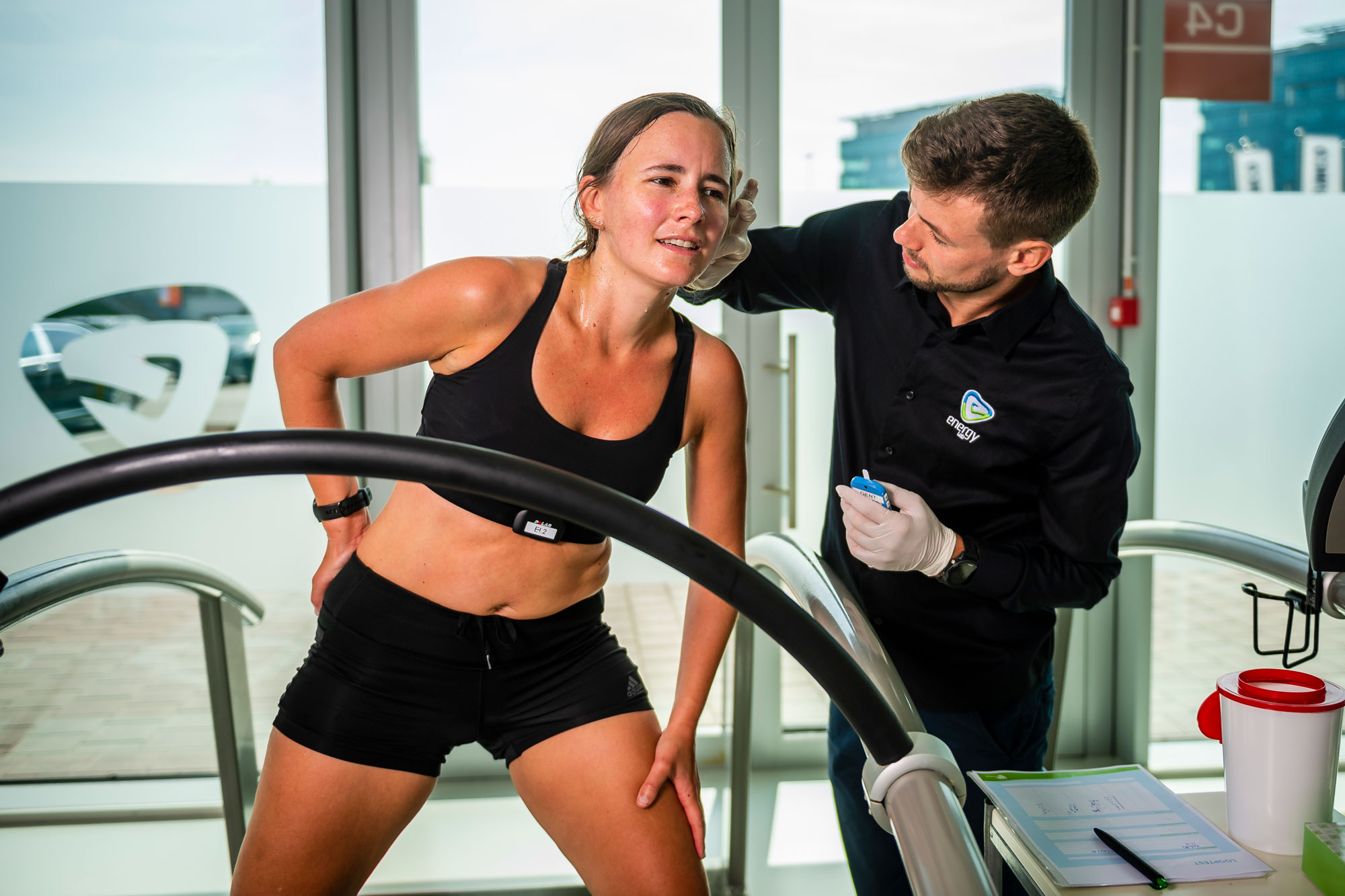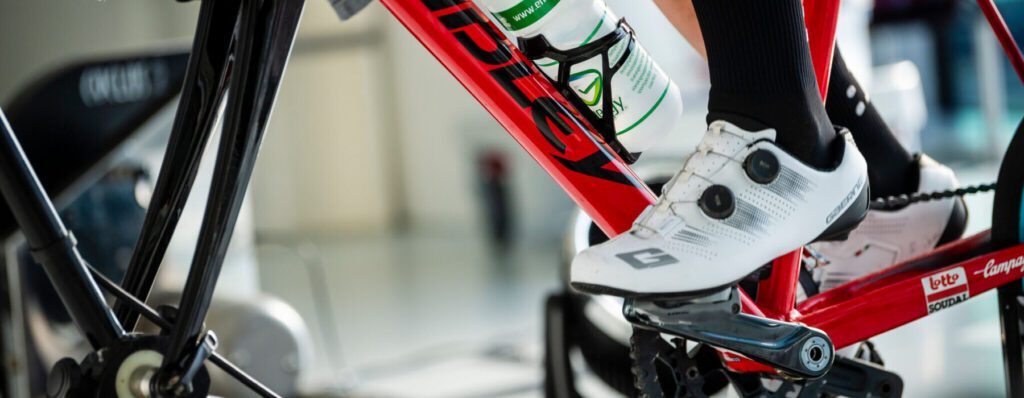
Healthy aging is a universal desire
Healthy aging is a universal desire, particularly in a society where population aging and life expectancy continue to rise. However, healthy aging is a complex concept that is not always straightforward and depends on various factors, including genetic predisposition to certain conditions, lifestyle, environment (such as air pollution), mental health, social network, …
Enter: the BIOKLOK study by GRAY (Ghent University Research for Aging Young) in collaboration with Energy Lab, NN, Novo Nordisk, and H42. In a nutshell, this pilot study aims to investigate whether a 6-month physical training program can add extra years to your life and essentially turn back your biological clock.

Chronological Age vs. Biological Age
Prof. Tim De Meyer, bioengineer: Scientists are searching for ways to accurately assess an individual’s “biological age.” Our chronological age is the number of years that have passed since birth. Our biological age reflects how well we age and is determined by our lifestyle, genes, and environment. Strictly speaking, your biological age predicts your remaining health span and lifespan. Until recently, there was no reliable method to measure overall biological age. Through various physical tests, blood markers, scans, and more, you can learn a lot about your health status and even the risk of developing (chronic) diseases. However, these methods provide limited information about the pace of aging, remaining health span and lifespan, and their relationship with mental well-being.
This is why there is currently a strong focus on research into epigenetic biological age (referred to as the epigenetic clock) and whether we can effectively reverse it. Professor Tim De Meyer explains further below.
Epigenetic Age as the Key Measurement of Biological Age?
Prof. Tim De Meyer, bioengineer: Epigenetic age is related to a layer above our DNA called epigenetics, which regulates DNA function. As we age, this epigenetic layer gradually becomes disrupted, and this can be measured as “epigenetic age.”
To emphasize its importance, epigenetic age has been proposed as a personalized and adjustable marker of age-related disease risk, essentially a new gold standard for biological age. Moreover, a recent study published in one of the most prestigious scientific journals revealed that the loss of epigenetic information is a primary cause of aging (Yang, Cell, 2023).
Nevertheless, the FDA (U.S. Food and Drug Administration) has specified several remaining major challenges (Drew, Nature 2022) that we aim to address in larger projects. While this pilot study will not provide all the answers, it will shed light on whether our epigenetic clock is sufficiently influenced by lifestyle changes.
What is the impact of a 6-month physical training program on the biological clock?
Dr. Sanne Stegen, coordinator at GRAY: That is the question we aim to answer with the BIOKLOK study. Forty participants aged between 35 and 65 will undergo an intensive cycling training program for 6 months under the guidance of Energy Lab coaches. The GRAY research team closely monitors the participants. We want to determine whether becoming physically fitter can reverse our biological age, and also gain insight into other lifestyle factors (such as sleep, stress, and nutrition) that may influence why some individuals gain more healthy years from such a training program than others.
Summary
In summary, the BIOKLOK study represents a crucial step in unravelling the epigenetic clock and the effects of lifestyle changes on our healthy years. While we have long known that a healthy lifestyle leads to more healthy years, pinpointing the specific impact of a particular lifestyle intervention on our lifespan is challenging.
Through interdisciplinary collaboration and advanced research methods, the study aims to provide insights into how lifestyle choices can influence our biological age. The findings of this study have the potential to shape future interventions and strategies that promote healthier aging, extend life expectancy, and improve the well-being of individuals as they grow older.
Related inspiration


